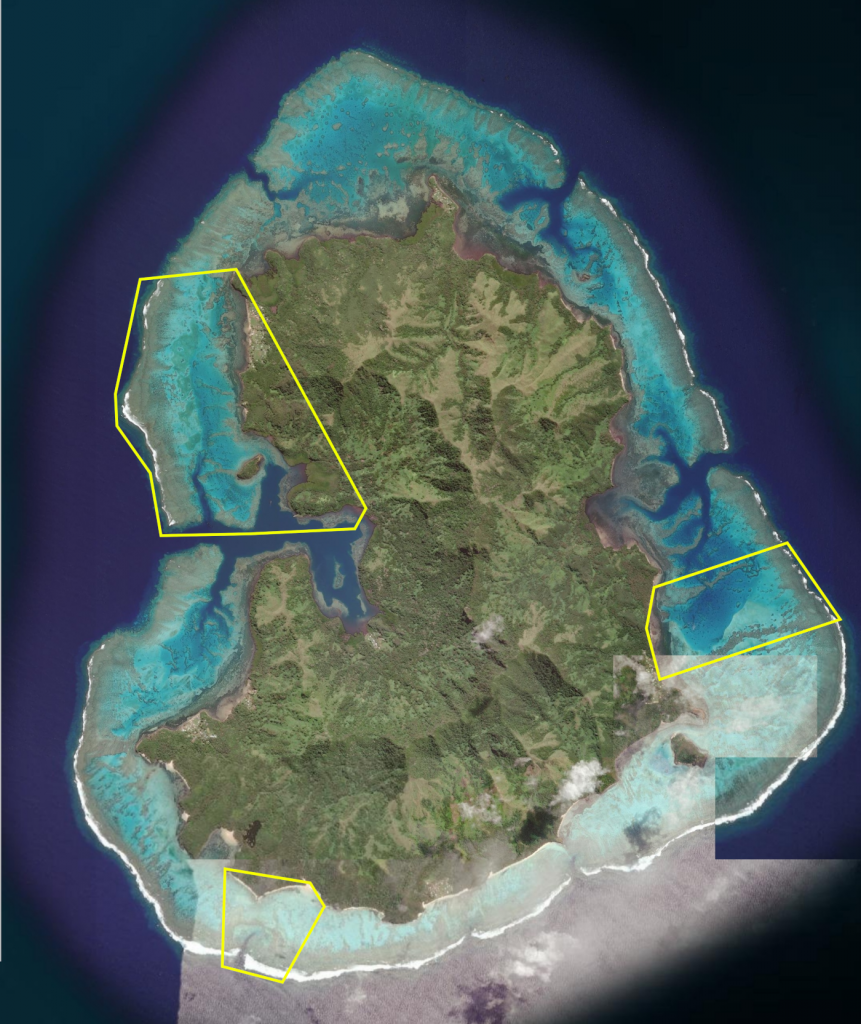The islanders of Matuku have decided to protect 3 areas–the biggest of them is 4.5 km2(!) and includes mangroves, sandy shelves and a lively, beautiful reef just off the main pass! No spear-fishing or net-fishing will be allowed in this Tabu (traditional ban) and it’s planned to be permanent, so all species of reef fish will find a refuge to grow, multiply and guarantee sustainable fishing for the villagers in the surrounding areas.
We have seen so many reefs here in Fiji that have been fished empty, either by locals trying to make a short-term profit with exporting fish, or even by visiting fishermen (many of those who have emptied their own reefs now raid remoter islands…), but some islands in the Lau group still feature pristine reefs, where overfishing only recently has started (mostly with the arrival of electricity, thus freezers and a way to export). When we first visited Matuku last year in July, we were impressed by the healthy reefs there, but talking to fishermen we found that they had already noticed a decline in fish. We started sharing info, explained the good and bad examples we had seen on other islands (e.g. empty, dead reefs in Tahiti, thriving fish and coral on the permanently protected side of Rapa Iti) and tried to raise awareness for the problems they would face if they kept overharvesting. We sailed to Matuku again last October and yet again in February this year and each time the plans to install Tabu areas became more concrete–visiting the planned protection area on the S side of the island we then had our terrible boat accident that cost Maikeli Tamani (the headman of one of the villages) his life and left me with injuries that are still healing.
Until recently Matuku had no internet and we only kept in touch with occasional phone calls on a landline with a very bad connection. When we heard that all the headmen and chiefs would travel to Suva for a conference that would lay down fishing rights (among lots of other things) we decided to head to Suva as well–to find out details and to maybe help with finalising issues. Meeting the headmen of Lomati (the village next to the pass) and Yaroi (the main village) we were hoping that they had agree on a little Tabu and were prepared to bring some more arguments for a permanent fishing ban, instead of a (more common) limited protection. Imagine our surprise when Tuni (the young, ambitious headman of Yaroi) outlined a huge area on the satellite pics we had prepared on our laptop. He almost seemed offended that we had doubted them. “You showed us the facts, so we did what’s necessary”–if only the world leaders had that much common sense, then global problems like climate change and pollution could be tackled and solved efficiently (instead of promising measures until 2030 or 2040…)
So this is a big success for the people of Matuku who will have sustainable fishing on a long-term basis (if climate change and pollution won’t wipe out all reefs) and hopefully more islands of Fiji will follow their example. It’s easy to lose all hope for the environment when you read the daily news about yet another catastrophe and yet another regress in legislations concerning protection as the people are still striving for short-term profit instead of thinking of the future and realising that we’re all doomed if we keep mistreating our planet like we’ve been doing for too long. “A further rise of soil sealing in Austria”, “Norway allowing deep sea mining”, one deliberately done catastrophe in Ukraine after the other–and that’s just an abstract of what we read on the news while having coffee this morning. I hope that the good news from our little corner of the world will make your day!








2 comments
Ilmu Forensik says:
June 27, 2023 at 1:16 pm (UTC 0)
How will this Tabu (traditional ban) contribute to the preservation of the local marine ecosystem and ensure sustainable fishing for the surrounding villages?
Christian says:
June 27, 2023 at 7:39 pm (UTC 0)
If the fish are not hunted in the tabu zone they can grow and multiply, so the fishermen can profit from the overflow in the surrounding areas.